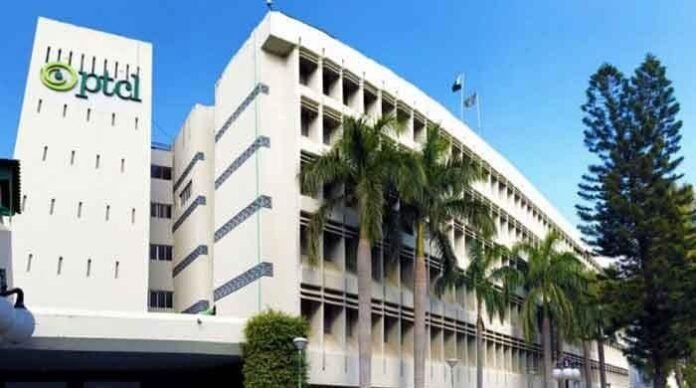ISLAMABAD: Pakistan Telecommunication Company Limited (PTCL) — the only state-owned enterprise (SOE) under private sector management — continues to struggle with mounting losses, despite showing growth in revenue. A report by the Central Monitoring Unit (CMU) of the Finance Division reveals that PTCL recorded a loss of Rs7.2 billion in the first half of the fiscal year 2024–25, pushing its accumulated losses to Rs43.6 billion.
According to the CMU report, PTCL’s financial position has further deteriorated, moving it up from 10th to 7th place on the list of top loss-making SOEs during the reporting period. The report also points to pension liabilities amounting to Rs42.84 billion, adding to the company’s financial strain.
Despite the government’s 62% shareholding and 12% public float on the stock market, PTCL’s financial performance remains underwhelming. The company operates through its core services as well as its subsidiaries — Ufone, its cellular wing, and UBank, a microfinance entity.
A key development in PTCL’s strategic direction is its planned acquisition of Telenor Pakistan, a bold move aimed at strengthening its competitive standing in the telecom sector. While the acquisition promises synergies, cost efficiencies, and a broader subscriber base, it also introduces serious risks. Financing the deal, likely through a mix of debt and internal resources, could significantly leverage the Group’s balance sheet and inflate interest expenses.
The integration process — aligning Telenor’s operations, systems, and workforce with PTCL and Ufone — poses additional challenges. Potential cultural mismatches, operational disruptions, and customer churn could complicate the transition. Moreover, regulatory hurdles, spectrum liabilities, and forex exposure linked to the deal further heighten the risk.
If not strategically managed, the acquisition could place additional pressure on PTCL Group’s financial stability, derail digital transformation plans, and limit investment in core growth areas over the coming years.
The broader macroeconomic and regulatory environment also continues to pose challenges for PTCL. Escalating power tariffs, Universal Service Fund obligations, license fees, and the potential for new telecom taxes add to cost burdens. The government’s ongoing efforts to enhance tax collection from the sector increase overall uncertainty.
While PTCL has demonstrated revenue growth in line with its business plan, its struggle with profitability persists. Despite an improvement in gross profit, rising operational and finance costs have led to higher net losses, diverging from projected profit targets.
The company’s balance sheet reveals serious financial stress, with a debt-to-equity ratio exceeding 1,000 percent and ongoing liquidity challenges. Negative working capital — where current liabilities outstrip current assets — and poor return ratios underscore the gravity of underperformance.
Industry analysts note that PTCL must urgently focus on cost optimization, operational efficiency, and debt restructuring to bring its performance in line with business plan targets and ensure long-term financial sustainability.




